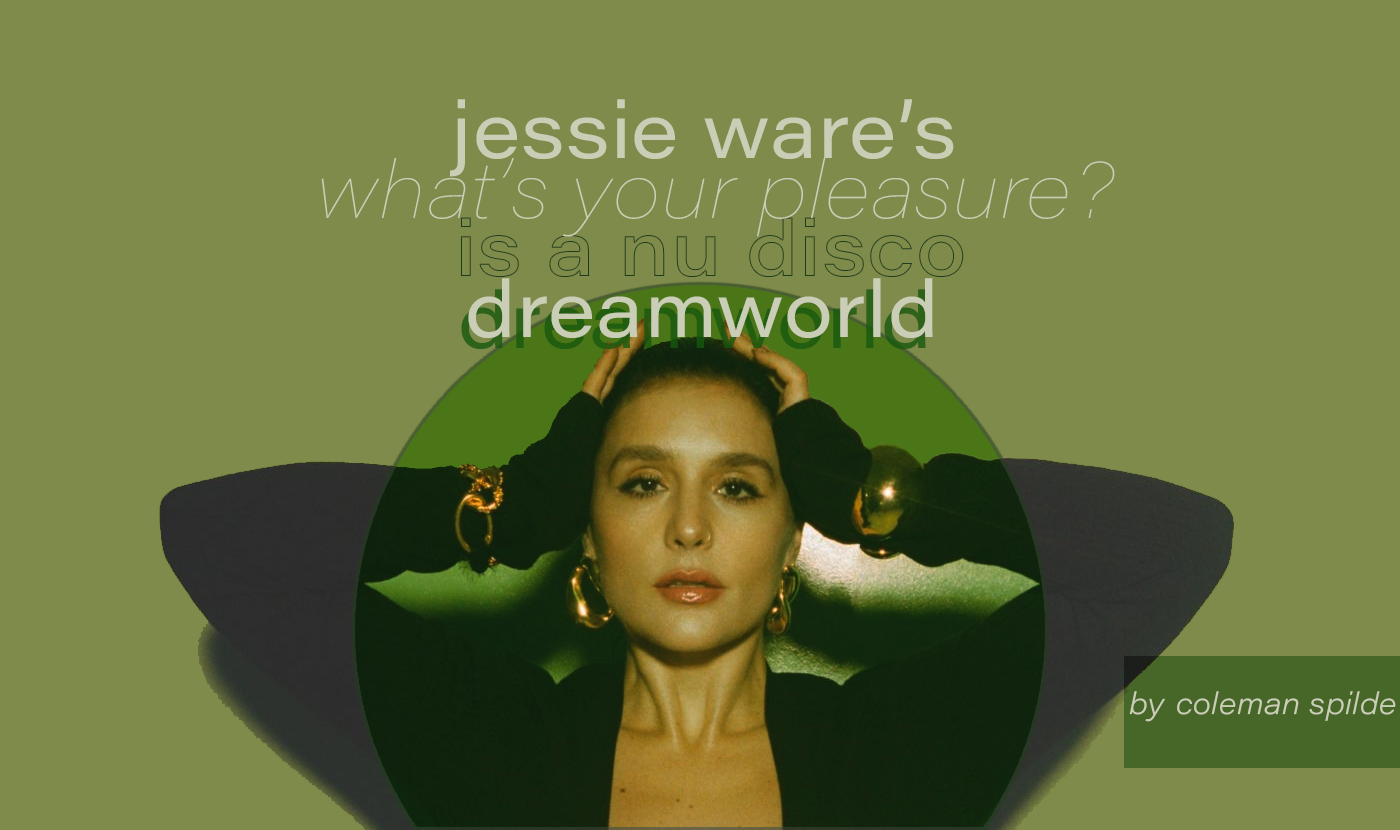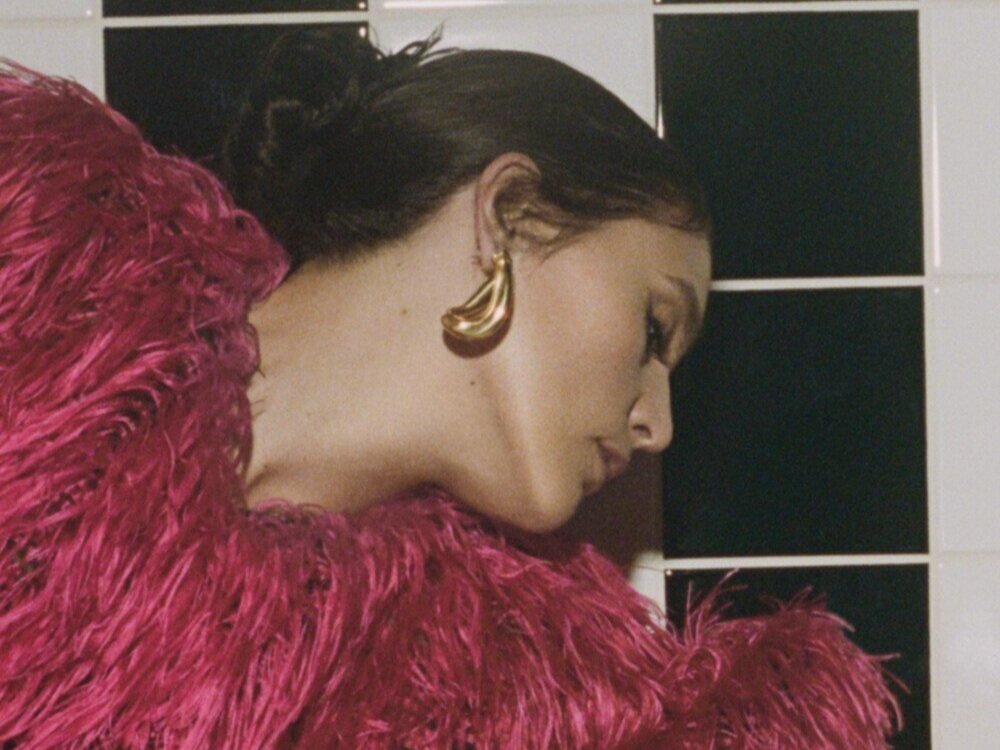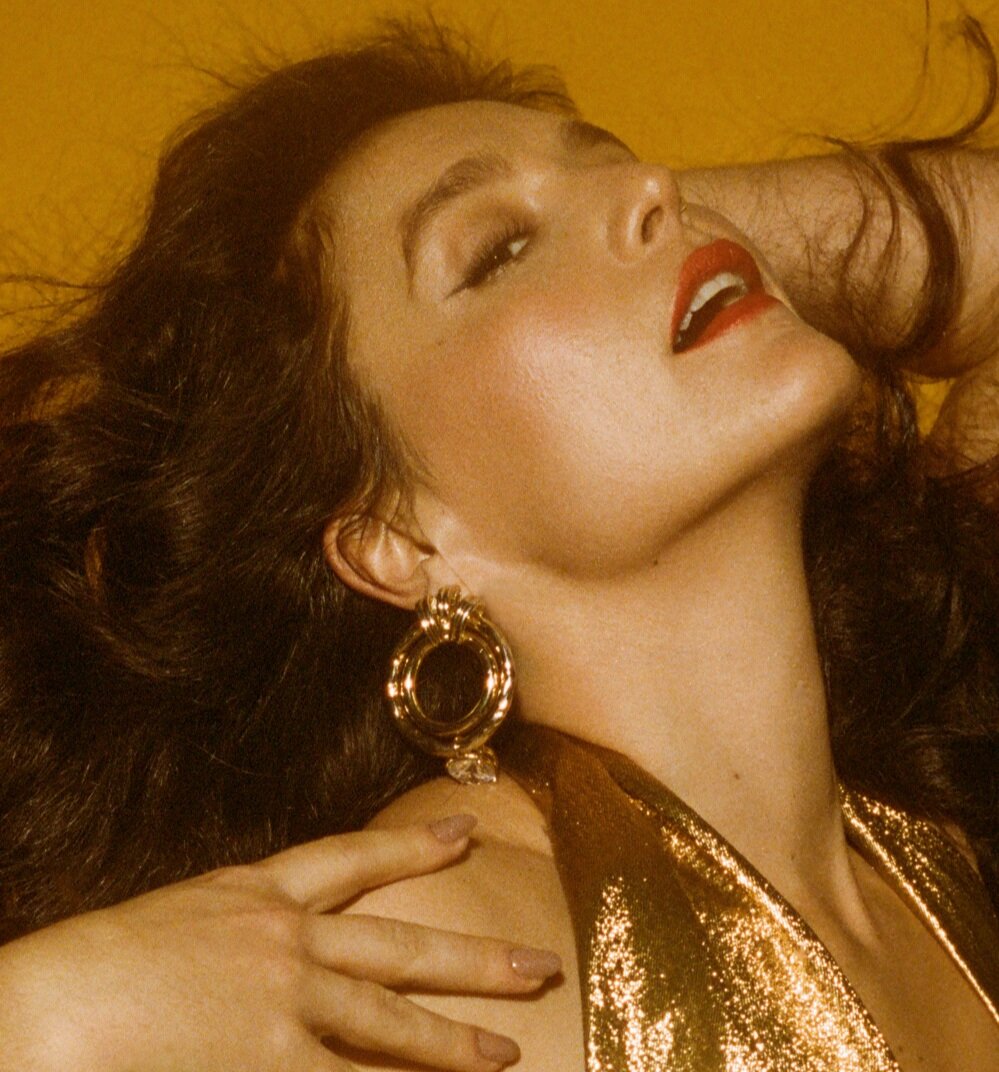Jessie Ware’s “What’s Your Pleasure?” is a Nu Disco Dreamworld
The singer’s fourth album is her best yet — an exuberant masterpiece made for the dance floor
When “Adore You,” the first single from Jessie Ware’s fourth studio album What’s Your Pleasure?, dropped in February last year, it was immediately clear that the London-native intended on branching out from the sound she had settled into since 2014. Ware’s 2012 debut album Devotion was a collection of beautiful, expertly-selected songs that highlighted her ability to compose both balladry and innovative midtempo electro-pop songs that featured deceptively smart production. But its follow-up Tough Love and her third album Glasshouse, never quite matched that initial captivating sound — nor did they offer up anything staggeringly new to showcase Ware’s exceptional talents.
For a moment, it seemed that Jessie Ware might be destined to fall into the category of infamous nondescript British songstresses, the same one occupied by artists like Leona Lewis and Rita Ora: singers with undeniable talent who have devoted fan bases but never quite seemed to capture the attention of the public again after a couple hit singles or albums.
Ware’s songs had maintained their seductive nature, but they needed something new to add the spice back. They had become the kind of songs that would fit perfectly on any sex playlist but weren’t quite daring enough to illicit a pause from any parties involved to take note of the artist for post-coitus listening.
Jessie Ware by Carlijn Jacobs for What’s Your Pleasure?
But “Adore You” was the first sign that Ware might be moving beyond just midtempo, adult contemporary R&B songs. While the track is certainly sexy, it traded Jessie Ware’s standard pop/R&B sound for mellow, cooing professions of love across varying synth bass melodies.
As more songs from What’s Your Pleasure? began to trickle out over the next year, each cut sounded more uptempo and memorable than the last. “Mirage (Don’t Stop)” interpolated one of the all-time great 80s hits, Bananarama’s “Cruel Summer,” for its verses which were matched against plucking bass and handclaps before diving into an infectious chorus where layered harmonies repeatedly command the listeners, “don’t stop movin’ together, keep on dancing.”
Jessie Ware by Carlijn Jacobs for What’s Your Pleasure?
And then there was “Spotlight,” technically the record’s lead single. It opens the album with stunning strings set against soft piano, nodding to Ware’s adult contemporary past, before falling through a hole into low, warbling synths. It’s a moment that feels completely theatrical, almost as if you can hear the disco ball being slowly lowered into the studio. Throughout the remaining four minutes and fifty-five seconds of the song, Ware’s vocals glide and gradually crescendo over perfectly level guitars and hi-hats before all the sounds spin together into a hazy fantasy world, floating out below the Ware’s final request: “tell me when I’ll get more than a dream of you.”
That’s the image conjured by What’s Your Pleasure?: a soul-tinged, nu disco dreamworld to sink into. Ware told Apple Music that the premise behind the record was “escapism,” and that’s exactly what she delivers as the album moves into its title track. Opening with handclaps stacked onto synths and sultry ooh oohs, “What’s Your Pleasure?” feels almost impossibly sexy before the first real lines of the song have even begun. Ware and her executive producer, Simian Mobile Disco’s James Ford, have demonstrated their ability to make hypnotic tracks together before, but nothing they’ve made together has ever sounded quite like this. As the synths begin to descend during the pre-chorus, Ware assures a lover, “I know the way to make you happy.” She’s determined to make the night unforgettable, coyly inquiring about her paramour’s passionate proclivities. It feels raunchy but never explicit — something Ware’s best tracks have always managed to accomplish that appears again here with more success than ever before. It’s the kind of dynamic tune that would sound as good in a perfume advert or runway show as it would in the bedroom.
If What’s Your Pleasure? is based on a principle of escapism, sex and sensuality are tied innately to that desire to break free. A song like “Ooh La La” exemplifies the kind of autonomy one can have when they’ve traded the day’s watercooler small talk in favor of subdued lustful cravings and appetites for danger. The song opens with strumming bass guitar paired against the sound of car horns honking, a needle drop from some fictional film where a New York office-worker stumbles out onto the sidewalk after work during a heatwave in the summer of ’77. “Every day I look, for your car to pick me up on the avenue/driving round, take me out, listening to the music,” Ware sings, conjuring images of her in the front seat of a boyfriend’s Camaro. After a stop at one of their apartments for an hour or two of uninhibited intimacy, the track heads back to the streets for its dizzying outro. “Driving fast, technicolor street lights/cigarettes on the dash, we can have a sweet time,” Ware coos before looking over at the man in the driver’s seat: “Baby, where have you been all of my life?”
Jessie Ware by Carlijn Jacobs for What’s Your Pleasure?
While a good portion of the album is centered in danceable disco grooves, a few cuts from What’s Your Pleasure?’s back half slow it down a bit, letting Ware dip back into her signature breathy, soulful vocals without ever letting go of a pure 70s sound. “In Your Eyes” challenges a lover to confess his true feelings by sticking around after the music stops. Deep, bubbling synths and sweeping strings sound lush against her yearning vocals. Later, the same sounds appear again on “The Kill,” perhaps the song on the album that descends furthest into darkness. It’s sonically reminiscent of the more anguished cuts from Moby’s brilliant 2008 album Last Night. Here, Ware is once again asking a partner not to leave, fearing a fatal broken heart. “I’ve been waiting my whole life for someone who makes me feel like you do,” Ware croons over foreboding funk beats. It’s a feeling everyone has felt at one time or another: the fear of losing someone who makes you feel alive and the carnal desire to make them stay.
But Ware isn’t sacrificing her dignity for a man. Rather, she’s expressing vulnerability as just another facet of her femininity, one that is dually empowering. She showcases these forces on the exuberant “Save A Kiss,” which demands her lover to wait up a little longer for her. The song’s staggering production — including relentless synths that recall Robyn’s Body Talk — matched with rapturous vocals, exudes triumphant confidence that conveys Ware’s security in her womanhood.
Jessie Ware by Carlijn Jacobs for What’s Your Pleasure?
No other song sticks quite as hard as the brilliant, groove-heavy “Soul Control,” unquestionably one of the best pop songs of the year. Staccato harpsichord synths pump through the song, making it completely irresistible to even the most stone-faced listener. It’s a tune plucked directly from a dance line in Saturday Night Fever, complete with “woos!” punctuating the repetition of the “baby it’s automatic, we touch and it feels like magic” chorus. “Soul Control” is definitive proof that Jessie Ware can flex over any tempo she pleases, all while making it sound completely effortless.
What’s Your Pleasure? is the brightest spot in Jessie Ware’s discography to date. It’s not only a return to the more electronic, dancefloor-based roots of her early career, but a celebration of everything she has done since. One gets the impression that if Ware had tried to reinvent herself too drastically between albums that this new record could not exist. What’s Your Pleasure? is the sound of a woman in her prime and at her most confident, emboldened by the enthusiasm she has for life and her family. It’s the kind of exuberant, sophisticated album that will remind every listener and critic to be wary of ever putting a musician in a box. Just when it seemed Jessie Ware might be content with zigging, she zagged — right across the dance floor.





